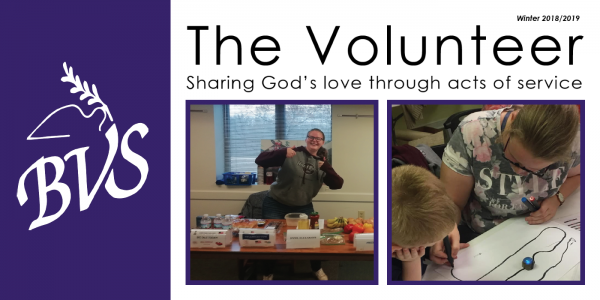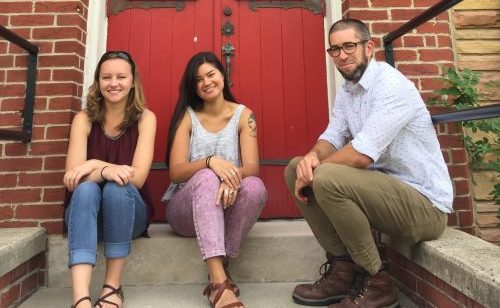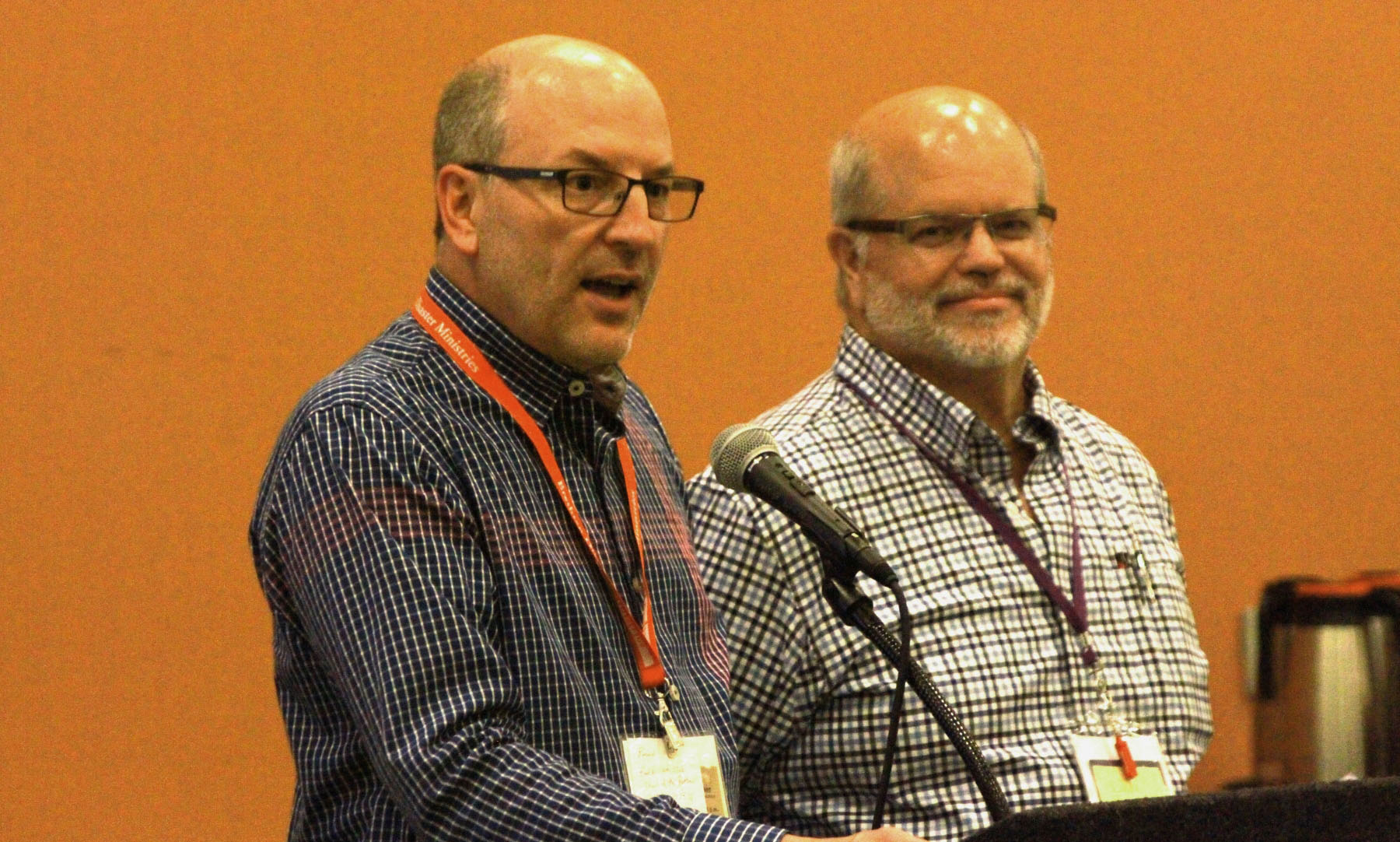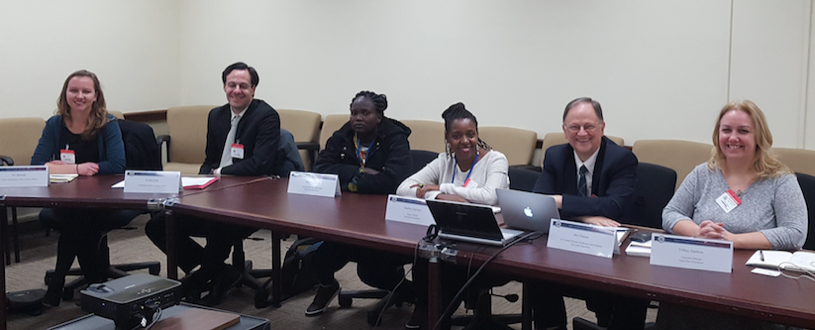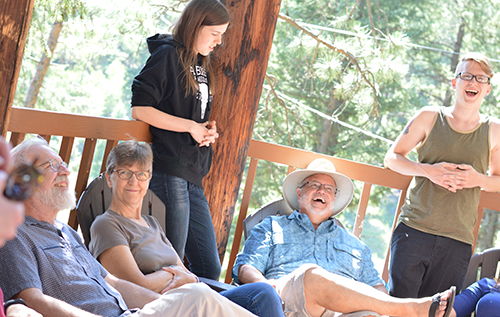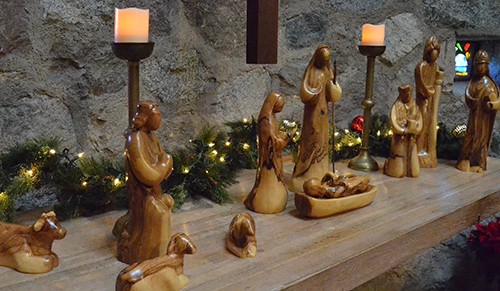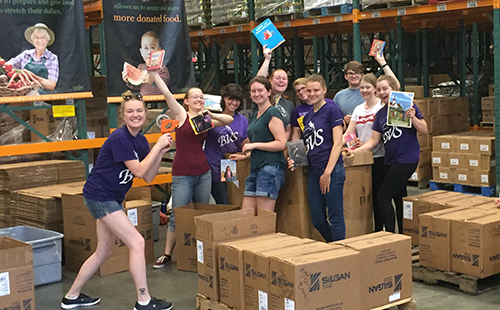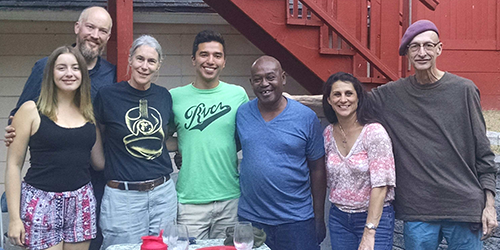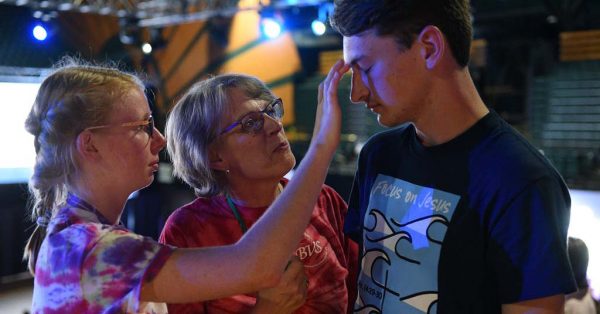
www.brethren.org/yya
Photo by Glenn Riegel
By Emmett Witkovsky-Eldred, Brethren Volunteer Service volunteer for Youth and Young Adult Ministries
“When the day of Pentecost had come, they were all together in one place. And suddenly from heaven there came a sound like the rush of a violent wind, and it filled the entire house where they were sitting. Divided tongues, as of fire, appeared among them, and a tongue rested on each of them. All of them were filled with the Holy Spirit and began to speak in other languages, as the Spirit gave them ability” (Acts 2:1-4).
I’ve always been shy. Just thinking about gathering with dozens of strangers and getting to know them makes me anxious and bashful. I never expected to spend a year in Brethren Volunteer Service helping plan that sort of event. Well, actually, three: Christian Citizenship Seminar (April 27-May 2), Young Adult Conference (May 24-26), and National Junior High Conference (June 12-14). During my service in Elgin, Ill., with Youth and Young Adult Ministries of the Church of the Brethren, I am responsible for shepherding people and wrangling details that allow these events to succeed.
Each event promises to kindle the flame of community that fills us with warmth and light. As all who attended a powerful denomination-wide event know, there’s something special about being gathered together to worship God under one big roof. Our hymns sound the richest, our prayers feel the deepest, and God’s spirit is the most palpable when we cross boundaries of race, gender, theology, and geography to simply be together.
As I’ve learned through summers in outdoor camping ministry, the potential for transformative community-building is amplified by the youthfulness and hopefulness of the people who go to these events. Because of their energy, their generosity of spirit, and their capacity for fun and friendship, youth and young adults are natural community-builders. This makes youth and young adult events of the Church of the Brethren ripe for interactions that resemble God’s beloved and sacred community.
Simply put, youth events like CCS, YAC, and NJHC are the moments when Pentecost comes alive—not a moment in the liturgical calendar but a revelation of what community looks like when anointed by the Holy Spirit. When we gather, we build our community upon love, free ourselves of jaded inhibition, and embrace diversity to foster unity. We find ourselves enflamed with love for God and each other. We develop an uncanny talent for speaking to one another in a language we can all understand.
I sometimes wonder how a shy person like myself would have fared at that first Pentecost. Could I have come out of my shell enough to speak to my neighbors in their own language? Could my energy sustain tongues of fire upon my head? Then I remember my own National Junior High Conference and my first Young Adult Conference. Those were moments when I felt enveloped by the community of God. This happened, not in spite of my quiet nature, but because in God’s kingdom, there is plenty of room for both extroverts and introverts. I belonged.
My hope for these events—much more than every detail being in its place—is for a spontaneous outbreak of community. May it spread like wildfire, and may it burn in each person’s own unique way. And may we be present in that moment to watch with wonder the church born anew in another generation.
Learn more about Youth and Young Adult Ministries of the Church of the Brethren at www.brethren.org/yya or support them today at www.brethren.org/givediscipleship .


